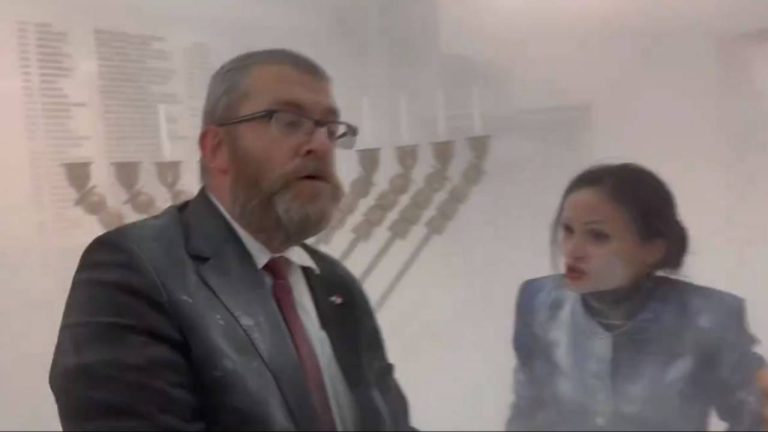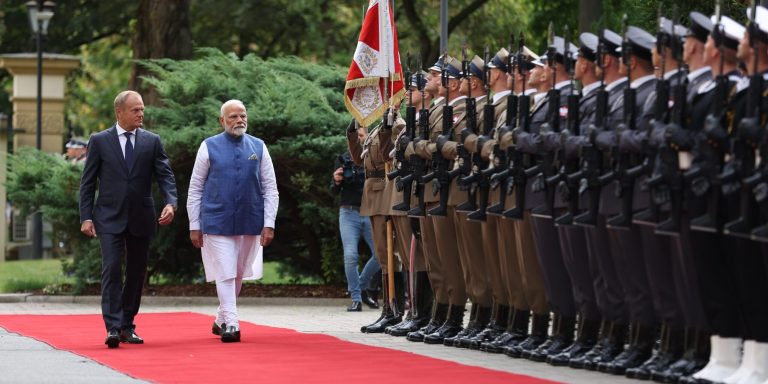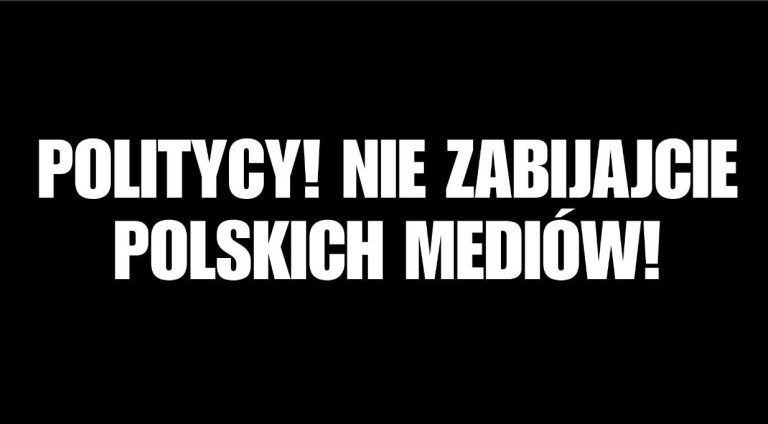Director to sue Polish justice minister for likening film critical of migrant treatment to Nazi propaganda

Senior figures in Poland’s conservative government have condemned a new film by renowned Polish director Agnieszka Holland about the migration crisis on the border with Belarus, which depicts mistreatment of migrants by the Polish authorities.
The justice minister likened it to the type of anti-Polish propaganda produced by the Nazis, in response to which Holland today announced that she would sue him for defamation.
The film has won positive reviews from critics and is being tipped by some to win the Golden Lion at the Venice Film Festival, where it received a standing ovation on Tuesday after its premiere.
Green Border tells the fictionalised story of a Syrian family’s attempts to enter the European Union by crossing the border from Belarus into Poland. The film is both directed and written by Holland, a two-time Academy Award nominee.
In real life, tens of thousands of migrants – mostly from the Middle East, Asia and Africa – have attempted to cross that border since mid-2021 with the encouragement and help of the Belarusian authorities.
Poland has adopted tough measures in response, including building a new physical and electronic barrier on the border to prevent crossings. Its border guard has also been involved in so-called “pushbacks” of migrants across the border, a practice found unlawful by Polish courts and criticised by the UN.
Poland and Belarus are „violating the human rights of refugees and migrants” amid the ongoing crisis, says the @UN’s human rights agency.
Both countries refused to give the UN’s team access to the border to fully assess the situation there https://t.co/OGnqGasTSq
— Notes from Poland 🇵🇱 (@notesfrompoland) December 22, 2021
According to reviews and the film’s trailer, the work depicts mistreatment of migrants by both the Belarusian and Polish authorities, including pushbacks, as well as efforts by Polish activists to help those crossing the border.
Writing for Euronews, David Mouriquand notes that the film “does not go lightly when it comes to calling out Poland’s inhumane policies” and shows the “dehumanising treatment from the indoctrinated guards with gruelling precision”.
After its premiere at Venice on Tuesday, the film received a fifteen-minute standing ovation, according to Polish media outlets. Reviews, including from The Hollywood Reporter, The Guardian and Variety, have been overwhelmingly positive.
Agnieszka Holland’s Venice Competition Entry Explores 'Border’ Between Good and Evil Amid Europe’s Refugee Crisis https://t.co/Lh6snSNFwK
— Variety (@Variety) September 4, 2023
The Polish authorities, however, deny human rights abuses and argue that it is their duty to prevent illegal crossings of the border, which is also the eastern frontier of both the European Union and NATO. Senior figures from the ruling camp have this week condemned Holland’s film.
“In the Third Reich, the Germans produced propaganda films showing Poles as bandits and murderers,” tweeted justice minister Zbigniew Ziobro on Monday, before the film had been screened. “Today they have Agnieszka Holland for that.”
In a subsequent interview with Catholic broadcaster Radio Maryja, Ziobro said that, “instead of supporting [Polish] soldiers and officers…Agnieszka Holland is part of Russian propaganda”. He again likened her work to Nazi propaganda.
“Our enemies are engaged in various disinformation activities, distorting the image of Poland in order to weaken it,” said the justice minister. “Holland has made herself part of this by preparing a film that distorts the image and shows Poland from the worst angle.”
W III Rzeszy Niemcy produkowali propagandowe filmy pokazujące Polaków jako bandytów i morderców. Dziś mają od tego Agnieszkę Holland…https://t.co/Cx4OhNTlHr
— Zbigniew Ziobro | SP (@ZiobroPL) September 4, 2023
Today, interior minister Mariusz Kamiński, under whose authority the border guard operates, joined the criticism of the film, calling it a “brutal attack on Polish uniformed officers [who are] defending not only Poland but also Europe”.
“Holland is not telling the truth…She consciously manipulates our emotions,” said Kamiński. “These are not war refugees, they are illegal migrants who are exploited by the [Belarusian] regime.”
Most of those who have managed to cross the border have not sought to claim asylum in Poland. Instead, thousands have travelled on to western Europe, in particular Germany. However, some have also sought international protection in Poland.
A group of Syrian and Iraqi asylum seekers – many of them children – are “trapped” on the Polish-Belarusian border, having faced violence in Belarus but unable to enter Poland, according to activists.
Poland’s human rights office has visited the group https://t.co/S0b9NqxEbd
— Notes from Poland 🇵🇱 (@notesfrompoland) May 29, 2023
In response to Ziobro’s criticism, a lawyer representing Holland announced that she would be suing the justice minister for likening her film to Nazi propaganda.
“In our country, which experienced the death, cruelty and suffering of World War Two, a comparison to the perpetrators of these events is extremely painful and requires an appropriate response,” wrote Holland, noting that she herself is the daughter of a Warsaw Uprising participant and the granddaughter of Holocaust victims.
“Our film is an attempt to give voice to those who have no voice,” she added. “In Poland, the issue of migration is presented one-sidedly, only from the perspective of government propaganda, which is interested in only one thing – to scare society, because people who are afraid are much easier to rule.”
Meanwhile, a host of leading figures from Poland’s film industry and cultural institutions have come out in solidarity with Holland, as has Mike Downey, the chairman of the European Film Academy.
Main image credit: Films Boutique (press materials)
Daniel Tilles is editor-in-chief of Notes from Poland. He has written on Polish affairs for a wide range of publications, including Foreign Policy, POLITICO Europe, EUobserver and Dziennik Gazeta Prawna.






